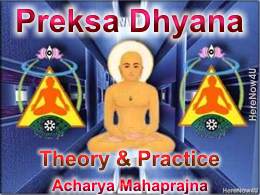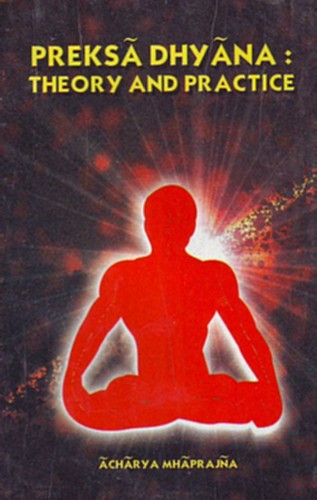
Attainment Of Bliss (Samadhi) [1]
[1] The term Samadhi is used to express
|
One of the most important benefits of the practice of contemplation is the attainment of the state of bliss and blessedness. It is considered to be the greatest achievement of a purposeful life. All other achievements seem insignificant when one attains this state. One, who is fortunate to attain various other things (wealth, power etc.) is sometimes found to be helpless and miserable. But one who has attained bliss is never unhappy or miserable. The words, pleasure, joy, delight etc. also denote feeling of satisfaction or happiness. But in this case the feeling is most likely to be sudden or transient and not sustained. One attains bliss (Samadhi) when one is free from physical sickness (vyadhi), mental agony (adhi) and emotional malaise (upadhi). Only when one has overcome the trinity of physical, mental and emotional disorders, one can hope to attain sustained happiness. When one suffers from physical illness (due to malfunction of a vital organ), one is unhappy with pain and misery. If one is afflicted with a mental disorder (such as tensions) one becomes agonized and does not find peace for a single moment. In spite of possessing all the comforts of life, one feels quite unhappy. An emotional malaise is even more terrible than a mental malady. Emotional malaise means psychological distortion. Cruelty, fanaticism, militarism are some of the psychological distortions. When one suffers from one or more of these, one becomes almost inhuman and does such acts as do not behave a human being. The obstacle of evil trinity must be removed before one can attain sustained happiness. Strange as it may appear, one is able to choose one's way of life: Which way shall I adopt? The way of evil trinity or the way of bliss? Question may be raised: Does anybody wish to choose the way of evil trinity? The answer is: One suffers from the trinity of malaise only if one chooses to do so. An internal driving force produces a desire to become sick and ultimately manifests itself in sickness. The process is: overindulgence in food, drinks and sex, anger, greed and lust - all these are the precursors of sickness. How can one distinguish between the desire for over-indulgence in sex, etc. and the desire for going on the path of sickness? In reality, both are identical. If one chooses the other ways, one never falls sick.
Similarly one, who does not wish to be afflicted with a mental disorder, will never suffer from it This mental disorder is effective only if an internal desire drives one to the affliction and not otherwise. The mental state of like and dislike - attachment to some and aversion for others - are driving forces in this case. It is difficult to maintain mental health with strong likes and dislikes also. One cannot distinguish between the desire for mental disorder and the mental tension produced by like and dislike, attachment and aversion. The same logic applies to the emotional malaise. The root of all evils is greed and discontentment and this is the basis of one's desire to choose the evil trinity as one's way of life.
This means that if one desires to choose the other way of life, he has to overwhelm and subjugate his carnal desires of lust and hate. And when one has discarded the path of evil trinity
In fact, bliss is not a miracle nor is it something reserved for a few chosen people. It is a way of life for anyone and everyone who cares to choose it. One who realised this truth- this science of life - this art of living, can live a life of sustained happiness i.e. bliss.
The doctrine of contemplation is an important part of Preksa Meditation. Once the principle of contemplation and the technique for its practice is fully understood, a powerful tool for changing the way of life is in our hands. The aspirant of bliss, by the practice of contemplation, becomes aware of the obstacles in the process of attaining bliss. His desire for over- indulgence in luxuries, his negative attitude of like and dislike, his psychological distortions etc. disappear with the subjugation of greed and discontentment Thus, in the absence of factors which were responsible for generating the evil trinity, state of bliss is attained.
***********************************************************
End Of Book
 Acharya Mahaprajna
Acharya Mahaprajna

